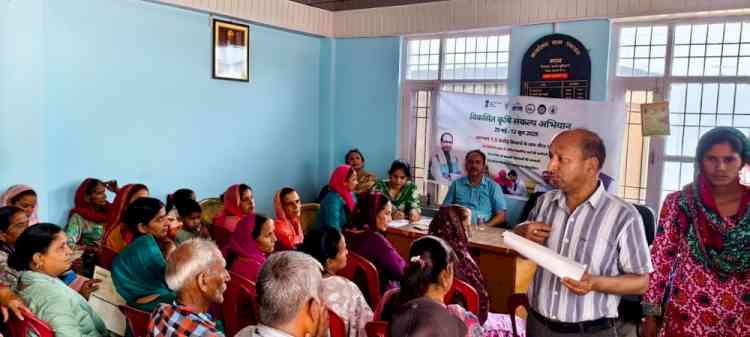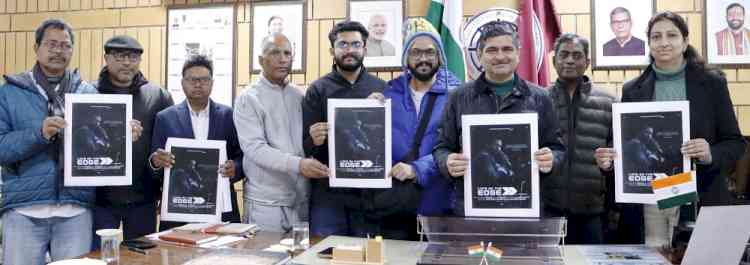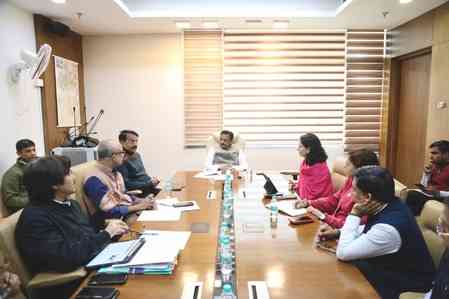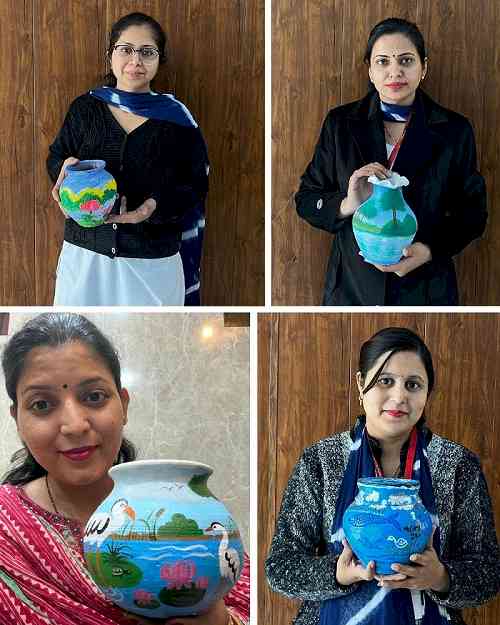Nauni University, Krishi Vigyan Kendras Launch Outreach Programme
Dr YS Parmar University of Horticulture and Forestry (UHF), Nauni, in collaboration with its five Krishi Vigyan Kendras (KVKs) and Research Stations, has launched an extensive farmer outreach initiative under the Viksit Krishi Sankalp Abhiyan, a national campaign by the Ministry of Agriculture and Farmers Welfare, GoI.

Dr YS Parmar University of Horticulture and Forestry (UHF), Nauni, in collaboration with its five Krishi Vigyan Kendras (KVKs) and Research Stations, has launched an extensive farmer outreach initiative under the Viksit Krishi Sankalp Abhiyan, a national campaign by the Ministry of Agriculture and Farmers Welfare, GoI.
As part of this fortnight-long programme, the university has mobilized 12 teams consisting of scientists from UHF and its KVKs located in Solan, Shimla, Kinnaur, Chamba, and Tabo, along with experts from the Regional Horticultural Research and Training Station (RHRTS) at Mashobra and Sharbo. These teams will be visiting various villages across different districts in Himachal Pradesh to directly engage with farmers, offering technical support and guidance.
The outreach teams include experts from allied state departments such agriculture, horticulture, animal husbandry, fisheries and ATMA. Progressive farmers and representatives from local FPOs will also participate in the programme. The initiative is designed to prepare farmers for the upcoming cropping season by equipping them with modern agricultural knowledge, promoting the use of high-quality seeds and creating awareness about various central agricultural schemes. The campaign also aims to deliver agricultural services and advisories directly to farmers’ doorsteps.
The programme was inaugurated at the university’s main campus, where UHF Vice-Chancellor Prof. Rajeshwar Singh Chandel addressed a group of farmers from Nauni, Shamrod, and Kotla Panjola. In his remarks, Prof. Chandel encouraged farmers to treat the university and its research stations as their second home and apply scientific knowledge gained from these institutions in their fields. He emphasized the adoption of healthy and diverse diets that include millets to improve well-being and advocated for a shift towards chemical-free, environmentally sustainable natural farming practices.
Dr. K.V. Prasad, Director of the Directorate of Floricultural Research (DFR) Pune; Dr. Sanjeev Chauhan, Director of Research and Dr. S.R. Dhiman, Head of the Department of Floriculture along with scientists from the university also addressed the farmers. They spoke about opportunities in floriculture and how farmers can boost their income through crop diversification. During an interactive session, progressive flower growers shared their experiences and concerns, which were addressed by the experts.
On Thursday, three teams from KVK Solan visited the villages of Tundal, Jhajhar, and Badoon near Chail, while another team covered Kunihar block, including nearby villages such as Jialang. The third team visited the villages of Maan and Lahrach. In Shimla district, teams from KVK Shimla and RHRTS Mashobra visited farmers’ fields in the Chopal block, engaging with farmers from Kedi, Rusla and Lalpani. Another team visited the villages of Kupwi, Dharchandna, and Dak, while a third team from Mashobra visited in the Narkanda block, covering Deeb, Kumarsain, and Lathi.
KVK Chamba also fielded three teams that visited the villages of Dulla, Faulgat, and Sarol in Chamba block, with the other two teams covering villages in the Salooni and Bharmour blocks. Similarly, two teams from KVK Kinnaur visited several villages in the Kalpa block, including Chini and Kothi. KVK Lahaul and Spiti II at Tabo participated actively in the campaign as well. One team visited the villages of Komic and Hikkim, while the other travelled to Langza.
In all these areas, the outreach teams conducted interactive sessions with farmers to address their crop-related problems and shared modern scientific practices aimed at pest control and enhanced productivity. Farmers were advised to follow only those practices recommended by the university and relevant line departments. Over the next two weeks, these teams will continue to visit more villages to create awareness about agricultural schemes and promote sustainable and profitable farming practices.


 City Air News
City Air News 










